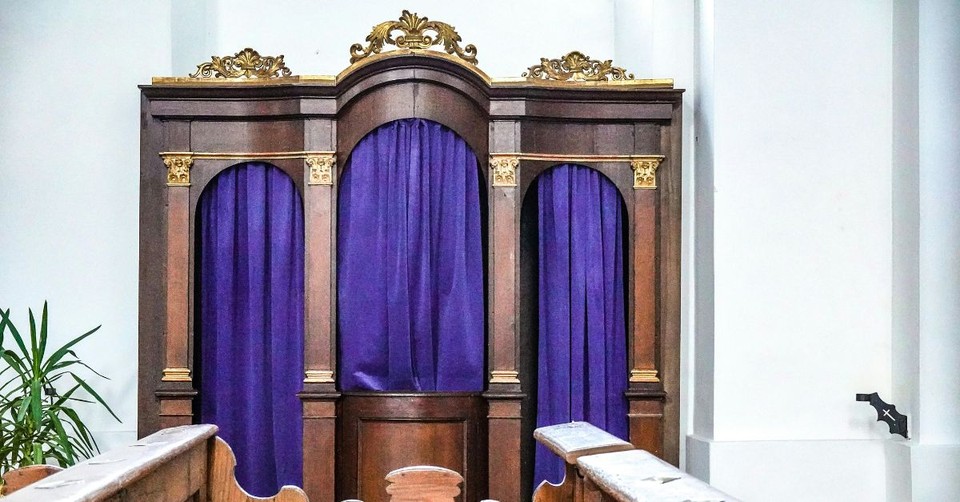Is Breaking the Seal of Confession More Important than Protecting a Child?

The Governor of Washington State recently signed into law legislation that would require clergy to report child abuse or neglect. There are many roles where such “mandatory reporting” is required, and many believe that this addresses a critical omission. Current mandatory reporters in Washington State include school personnel, nurses, social service counselors and psychologists.
Others, however, are concerned that without exceptions for clergy-penitent privilege, the law could place Catholic priests at odds with civil law due to the “seal of the confessional.” That would be considered a mortal sin and result in excommunication.
Bishop Thomas A. Daly of Spokane, Washington, responded with the following statement to his diocese: “I want to assure you that your shepherds, bishops and priests, are committed to keeping the seal of confession—even to the point of going to jail. The Sacrament of Penance is sacred and will remain that way in the Diocese of Spokane.” He went on to say that they have “solid protocols and procedures” in place for the protection of children.
Whether you agree with this stance or not, for a church embroiled in a child sex abuse scandal, it’s not a good look. But I’ll go further and say that I, for one, do not agree with the stance. Further, having established protocols and procedures for the protection of children has little to do with having first-hand knowledge of the ongoing abuse of a child that could be stopped if divulged.
Jesus said, “And whoever welcomes a little child… in my name welcomes me” (Matthew 18:5, NIV).
Now that may not seem like a whole lot, but in the Bible, the idea of “welcoming” someone was very specific and meant a lot more than it means today. It meant to be concerned about someone, to care for them, to show kindness to them. To welcome someone in the name of Jesus means to do as He would do, to do so for His sake, to do so as a Christ follower.
Then Jesus added these words: “But if anyone causes one of these little ones who believe in me to sin, it would be better for him to have a large millstone hung around his neck and to be drowned in the depths of the sea” (Matthew 18:6, NIV).
A millstone was a circular stone that was used to grind grain. There were two kinds of millstones: a small one that could be used in the kitchen by hand for small amounts of grinding, and a large one of industrial strength (which is the kind Jesus specifically referenced) that was pulled by a donkey or some other work animal around a grinding vat of some kind. This type of millstone would have been as tall as a man. It was huge and could weigh up to 1,000 pounds.
The imagery of hanging that around someone’s neck and then throwing them into the deepest parts of the ocean was strong.
But it was meant to be.
One of the most disturbing things I’ve ever read was an article in the Washington Post by a woman named Sarah Chang. Sarah worked as a federal prosecutor of sexual abuse crimes against children. Her office was responsible for investigating and prosecuting such things as the production, possession, and trafficking of child pornography.
During her first week on the job, she said that one of her colleagues gave her some advice on how to cope with what she would have to view in terms of evidence.
Her colleague said, “Turn the sound off.”
All Chang could imagine were children screaming, crying, and shrieking in pain.
Then came her first case file, containing multiple CDs and DVDs showing a young girl being abused by her father, who filmed his crimes with a handheld camera. So, she went to the forensic computer lab and braced herself. And despite her colleague’s warning, she knew she didn’t want to remain deaf during her first pass at the evidence. So she left the sound on in order to feel the horror of it all and to make sure she didn’t miss anything that would affect their case.
But she heard nothing.
She turned it up higher.
Nothing.
She turned the volume up as high as she could, but all she heard was silence. The five-year-old girl said nothing; she didn’t even sob. And that’s what she found in video after video—silent suffering.
She later learned that this is a typical reaction of young sexual abuse victims. Psychiatrists say the silence conveys their sense of helplessness, which is also why they are reluctant to report the incidents and why their tendency is to accommodate their abusers. Their helplessness is rooted in the complete breach of trust they’ve experienced because, all too often, their abusers are people they expected would protect them.
According to the Justice Department, more than 80% of sexual abuse offenses against children are committed by people they know—parents, relatives, daycare providers, and other trusted adults.
This is why the vast majority of cases are never reported. The “trusted” adult tells them to keep it a secret, or that it’s an act of love between them, or that they’ll hurt their family, or that it will get them in trouble.
Chang writes that on some days she has to look at 50 images, and on others up to 300. She dreads the videos the most because not only does she face the children’s silence, but – in both the photos and videos – their eyes, she says, are dead.
Jesus’ idea of a millstone seems about right.
The church must awaken to this and now. This is the darkest of the dark, and we are the only light. What would that mean? Report any and all abuse.
“But it’s my husband.”
Report it immediately.
“But it’s my uncle.”
Report it immediately.
“But it’s a staff person at my church and could hurt our church’s reputation.”
Report it immediately.
“But it was divulged to me during a confession.”
Report it immediately.
And then maybe rethink your understanding of the theology of the “seal of confession”
... particularly when it involves a child.
James Emery White
Sources
Kate Scanlon, “Washington State Bill Requiring Clergy to Report Child Abuse Signed by Governor,” America Magazine, May 5, 2025, read online.
Emma Taggart, “One in Ten Men Have Carried Out Sex Offences Against Children, Says Survey,” The Times UK, September 21, 2023, read online.
James A. Brooks, “Mark,” The New American Commentary.
Sarah Chang, “I Watch Child Pornography to Prosecute Sex Crimes. The Kids’ Silence Is Deafening,” The Washington Post, October 23, 2015, read online.
Photo Courtesy: ©Pexels/Magda Ehlers
Published Date: May 22, 2025
James Emery White is the founding and senior pastor of Mecklenburg Community Church in Charlotte, NC, and a former professor of theology and culture at Gordon-Conwell Theological Seminary, where he also served as their fourth president. His latest book, Hybrid Church: Rethinking the Church for a Post-Christian Digital Age, is now available on Amazon or from your favorite bookseller. To enjoy a free subscription to the Church & Culture blog, visit churchandculture.org where you can view past blogs in our archive, read the latest church and culture news from around the world, and listen to the Church & Culture Podcast. Follow Dr. White on X, Facebook, and Instagram at @JamesEmeryWhite.
Originally published May 22, 2025.







